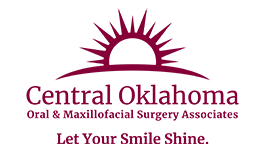16 Feb Most Common Procedures Performed By An Oral Surgeon
Patients may see an oral surgeon for any number of treatments that will help to boost their oral health and may also have aesthetic benefits. These specialists address problems ranging from impacted or missing teeth to misaligned jaws.
Regardless of the type of oral surgery procedure a patient is facing, it is helpful to prepare adequately in advance of the appointment to make sure that you are ready for the intervention and have everything that you need to take care of yourself afterward. This will maximize the likelihood of positive outcomes.
Patients may see an oral surgeon for any number of treatments that will help to boost their oral health and may also have aesthetic benefits.
Common Oral Surgery Procedures
A patient may need to consult with an oral surgeon for the following procedures:
- Wisdom tooth extraction
- Placement of dental implants
- Bone grafting
- Jaw surgery
General dentists often refer to these providers when such interventions are indicated because specialists perform these procedures more routinely than generalists do, which enhances their skill and expertise and improves patient outcomes.
The vast majority of dental surgery is performed on an outpatient basis using local anesthetic. Many patients will also opt for sedation for optimal comfort during the procedure.
Patients’ vital signs for any signs of distress are closely monitored while they are under sedation so that the oral surgeon can intervene as needed.
Preparing for Successful Oral Surgery and Recovery
The patient plays an instrumental role in the outcomes achieved through these surgical procedures. It is essential that you closely follow any instructions provided by your oral surgeon so that the process is a smooth and uneventful one. These instructions may cover topics such as:
- Anesthesia – You may need to fast or arrange for a responsible adult to escort you to and from the appointment.
- Preventing post-operative complications – Keep the surgical site clean and adhere to other instructions to minimize your risk of issues like infection or dry sockets.
- Post-operative pain management – Follow the directions provided regarding use of either over-the-counter or prescription strength painkillers.
- Dietary changes – You may need to limit your diet to softer foods for a period of time after your appointment.
If your dentist has recommended some sort of oral surgery intervention, we encourage you to visit our office for a consultation to learn more about the treatment process. Call Central Oklahoma Oral & Maxillofacial Surgery Associates and speak to one of our friendly staff members to schedule your appointment.
